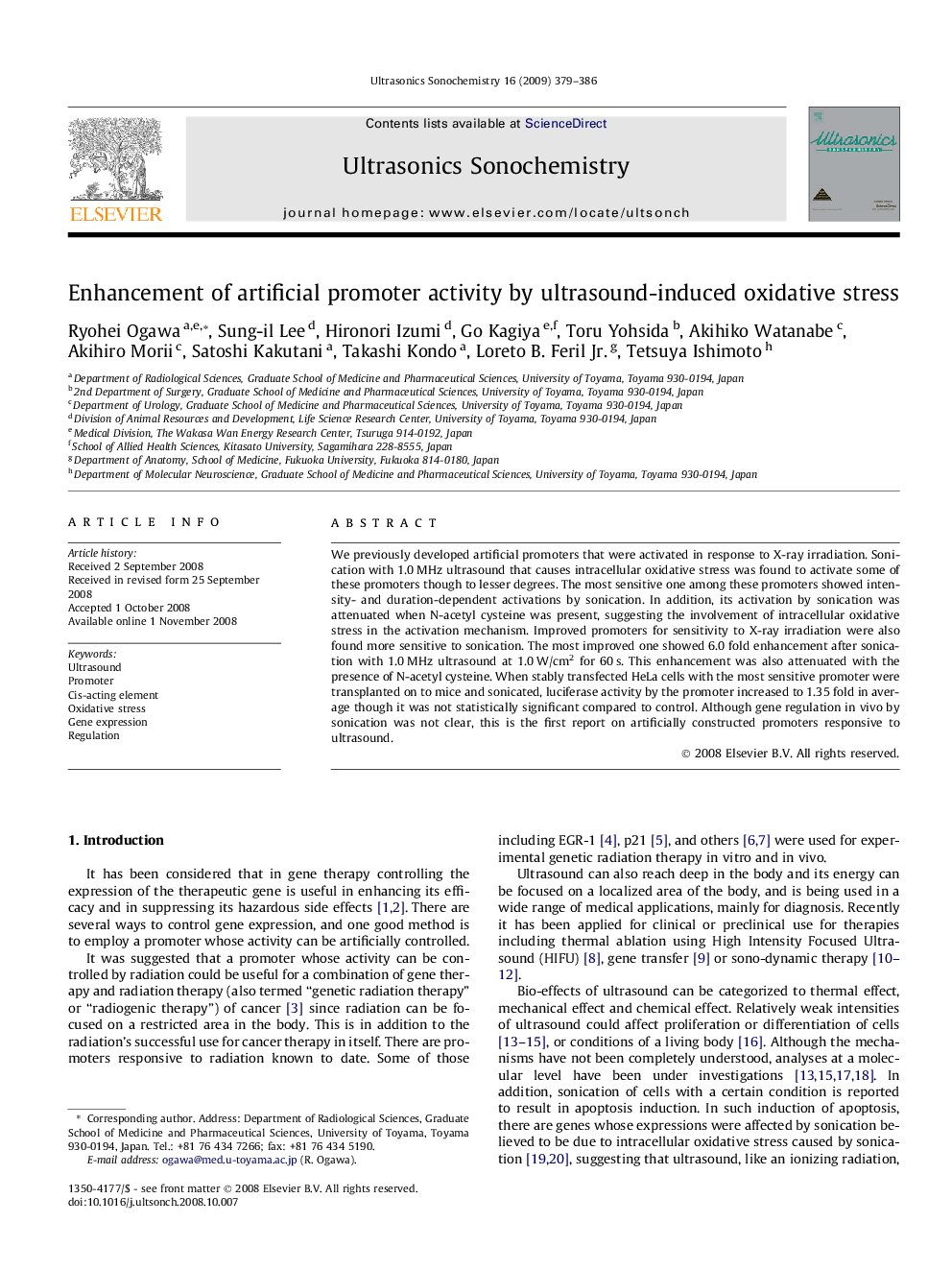| Article ID | Journal | Published Year | Pages | File Type |
|---|---|---|---|---|
| 1265930 | Ultrasonics Sonochemistry | 2009 | 8 Pages |
We previously developed artificial promoters that were activated in response to X-ray irradiation. Sonication with 1.0 MHz ultrasound that causes intracellular oxidative stress was found to activate some of these promoters though to lesser degrees. The most sensitive one among these promoters showed intensity- and duration-dependent activations by sonication. In addition, its activation by sonication was attenuated when N-acetyl cysteine was present, suggesting the involvement of intracellular oxidative stress in the activation mechanism. Improved promoters for sensitivity to X-ray irradiation were also found more sensitive to sonication. The most improved one showed 6.0 fold enhancement after sonication with 1.0 MHz ultrasound at 1.0 W/cm2 for 60 s. This enhancement was also attenuated with the presence of N-acetyl cysteine. When stably transfected HeLa cells with the most sensitive promoter were transplanted on to mice and sonicated, luciferase activity by the promoter increased to 1.35 fold in average though it was not statistically significant compared to control. Although gene regulation in vivo by sonication was not clear, this is the first report on artificially constructed promoters responsive to ultrasound.
